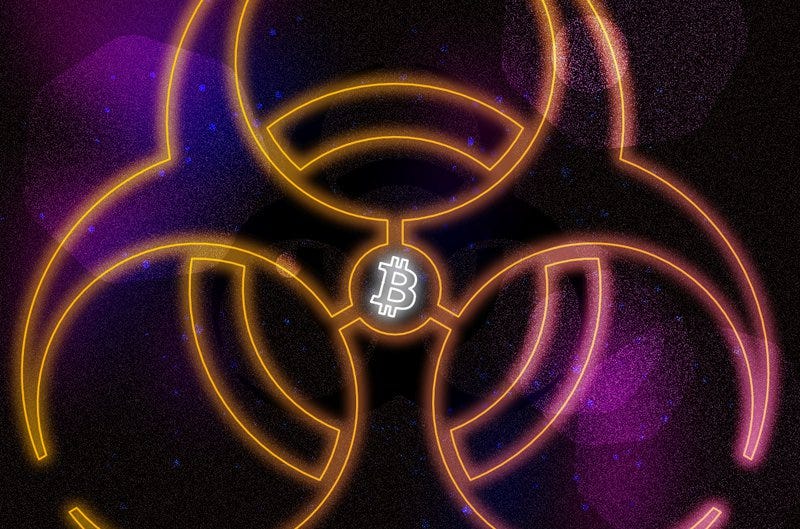Why the Toxic Bitcoin Maximalist Isn't Toxic After All
Unpacking the Misconceptions and the Path to a Bitcoin Future
The term "Bitcoin maximalist" often carries a negative connotation, conjuring images of unyielding zealots who dismiss all other cryptocurrencies. Yet, beneath this seemingly toxic exterior lies a pragmatic stance rooted in Bitcoin's unique attributes. Far from being mere fanatics, Bitcoin maximalists advocate for a decentralized financial future, and their focus on Bitcoin’s resilience amid a landscape littered with scams, ICOs, and failed exchanges offers a compelling case for why it might emerge as the money of the future.
The cryptocurrency space has been marred by high-profile failures. Initial Coin Offerings (ICOs) promised revolutionary returns but often delivered fraud, with billions lost to Ponzi schemes and outright theft. Exchanges like Mt. Gox and FTX collapsed under mismanagement and hacks, eroding trust in the broader ecosystem. These incidents highlight a chaotic market where speculative projects overshadow sustainable innovation. Bitcoin, however, has weathered these storms, maintaining its position as the first and most secure decentralized currency since 2009.
Bitcoin maximalists argue that this durability stems from its design: a fixed supply of 21 million coins, a transparent blockchain, and a decentralized network resistant to censorship. Unlike altcoins that often rely on hype or centralized control, Bitcoin’s proof-of-work consensus mechanism ensures security and scarcity, qualities akin to digital gold. The failures of other projects underscore a critical lesson: without a robust foundation, cryptocurrencies risk becoming speculative bubbles rather than viable money.
Moreover, Bitcoin’s network effect gives it an edge. With the largest market cap, widest adoption, and most developed infrastructure, it attracts developers, miners, and investors globally. This momentum contrasts with the fragmented altcoin market, where many tokens struggle to find real-world utility. Maximalists contend that this dominance positions Bitcoin to outlast competitors.
Critics may point to Bitcoin’s energy consumption or slow transaction speeds, but solutions like the Lightning Network are addressing these issues. Meanwhile, the scams and failures of other cryptocurrencies, such as the 2017 ICO craze or the Terra-Luna collapse, reinforce the maximalist view that Bitcoin’s simplicity and security make it the least risky bet. In a world seeking an alternative to centralized banking, Bitcoin’s track record and community resilience suggest it has the best chance of becoming the money of the future.



Thanks for painting such a clear picture.